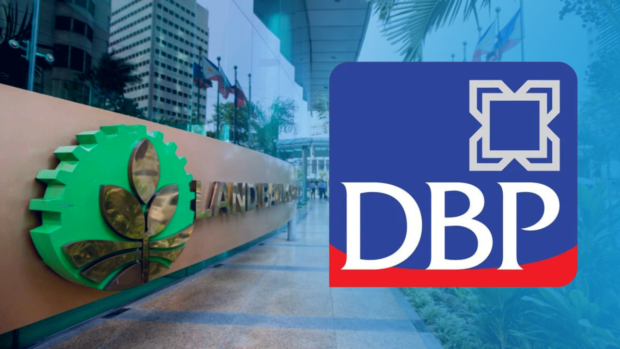Palace, GCG urged to drop DBP-Landbank merger plan
MANILA -State-owned Development Bank of the Philippines (DBP) has appealed to Malacañang to abort plans to merge it with Land Bank of the Philippines, warning of an “unintended monopoly” and concentration risks in a position paper that refuted point by point the justifications laid out by Finance Secretary Benjamin Diokno.
In the March 22 position paper submitted to Executive Secretary Lucas Bersamin, DBP president Michael De Jesus and chair Dante Tinga said the proposed merger might also “leave local government unit on the losing end.”
“The unintended monopoly may not necessarily result in improved access of local governments to credit, especially of underdeveloped provinces and municipalities,” the officials said in the letter.
https://business.inquirer.net/389898/dbp-bucks-merger-with-landbank
In an interview with Inquirer last week, De Jesus said at the end of the day, the DBP would abide by what the Governance Commission for Government-owned and -Controlled Corporations (GCG) would recommend. “If GCG says it is [a merger process to be effected] by executive order, then it’s by executive order. The [DBP] board will not oppose.”
But while it’s still under study, De Jesus said the DBP would like to take the opportunity to explain why the unification wasn’t the best option for the government.
“We think it’s best for the country that both operate separate from each other, and both recapitalize and each one can pursue their own mandates,” he said.
“The merger is not good. You’re putting all your eggs in one basket. In the future, in case of a mismanagement or corruption, you only have one bank as opposed to having two,” he stressed.
In a separate letter to GCG dated March 13, the top DBP officials also urged the GCC to deny the merger proposal, arguing that it was “not warranted given the statutory standards and present circumstances.”
They said the call for merger disregarded the more pronounced difference that existed in the mandates of these two banks.
Healthy co-opetition
In a setup where DBP and Landbank focus on their respective mandates – DBP on providing credit to develop industry, export and the government sector and Landbank on developing agriculture industry – both “thrive in a health co-opetition,” the officials said.
Due to separate single borrower’s limit (SBL), DBP argued that both banks complete each other by serving enterprises belonging to common industries simultaneously by having separate industry limits. SBL refers to the limit on total credit commitment to a single bank, currently at 30 percent of the lender’s net worth.
Massive capital
On the other hand, a merged entity that may enjoy the benefits of massive capital would still be subjected to SBL and industry limits, which may affect access to development financing. This will not be an issue with two separate institutions with separate SBL, the paper said.
Another concern raised was that under the merger proposal, 75 percent of DBP personnel would be deemed as redundant “without at all the integration of best practices in development financing of which DBP is known for.” The bank has about 3,600 employees.
In the absence of a mechanism integrating best practices of the concerned banks, DBP said the proposed merger — seen to create the largest bank in the country — would just be “a consolidation of assets and not the creation of an entity that complements strengths and creates synergy to better serve the country.”
DBP also questioned the assertion that the merger would help avoid the need for it to recapitalize and seek capital infusion from the government.
“Previous requests for dividend relief for capital build-up purposes are due to directives by the national government to finance infrastructure projects requiring immense financial resources,” the DBP paper said.
It said the enactment of Republic Act 7655, which requires GOCCs to declare dividends to the government, posed a challenge for banks which require cumulative asset buildup. It said amendment to this law was required to prevent government banks from regularly requesting capital infusion or dividend relief. INQ
RELATED STORIES:
https://business.inquirer.net/393547/marcos-oks-dbp-landbank-merger
Bill on Landbank-DBP merger out, but no word on retrenchment
